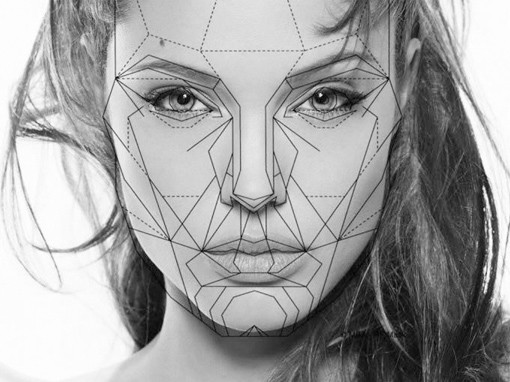
Aristotle created a well-known philosophy called the “golden mean.”
In summary, the golden mean is a desirable middle lying between two extremes. For example, Aristotle praised that courage was a necessary virtue; however, in excess it would manifest into recklessness, and in moderation it would become cowardice.
The Greeks not only applied his philosophy regarding character, but also in beauty.
The concept of the golden mean transformed into the golden ratio, also known as the golden section or divine proportion.
The golden ratio has allowed humans, over time, to form the modern concept of how beauty is measured.
According to the theory, the human face can be measured to see if it fits the divine proportions based on the following attributes:
- Center of pupil : Bottom of teeth : Bottom of chin
- Outer & inner edge of eye: Center of nose
- Outer edges of lips : Upper ridges of lips
- Width of center tooth : Width of second tooth
- Width of eye : Width of iris
If these measurements equate to 0.36 vertically and 0.46 horizontally (using the golden ratio ruler), then the face should be “perfect.”
While this theory seems a bit far-fetched, research has proved that humans distinguish other humans as “beautiful” or “handsome” by the symmetry of their face.
In the scientific journal Proceedings of the National Academy of Sciences, research showed that “balanced facial features are considered more beautiful by observers, confirming notions by the ancient Greeks that symmetry is an important ingredient in human judgments of beauty.”
It is also noted that humans may also find facial symmetry appealing because biological records show that equal proportions often indicated good health and genes.
Study team member William Brown of Brunel University said that if someone were to have asymmetrical features, biologically speaking they would not be as successful in finding a mate to reproduce.
“Subtle departures from symmetry may reflect poor development or exposure to environmental or genetic stress,” Brown said.
“In many species these departures are related to poor health, lower survival and fewer offspring.”
Biological research and Aristotle’s theory portrays symmetry as the only indicator of aesthetic beauty.
This idea is supported today, especially in advertising modeling.
Photographers have invested millions in Photoshop and other beauty-enhancing technologies to rearrange models face and body proportions.
Proof regarding this accusation has been confirmed through celebrities like Shailene Woodley and Keira Knightley, exposing that advertising and fashion industries morph actual bodies to fit the “mold.”
Woodley revealed in an interview she had been photoshopped and did not recognize some parts of her own body.
“I had boobs about three times the size they are in real life. My stomach was completely flat. My skin was also flawless. But the reality is that I do not have those lips and I do have a little bit of a stomach. It was not a proper representation of who I am,” Woodley said.
The concept to have the golden ratio is almost impossible to reach. Very few people are genetically blessed enough to have a evenly shaped face, straight nose, high cheekbones and perfectly-sized lips.
This is why we should disregard the golden ratio.
We try so hard to appear perfect, yet it’s impossible to reach it.
Aristotle may have been right regarding the golden mean, but to only be considered immaculate through genetic luck is absurd.
Asymmetrical factors and other genetic “mutations” can actually be a positive predisposition that contributes to aesthetic beauty.
There are one-sided dimples. There’s that freckle on your chin. There’s that little bump on your nose.
These quirks that make us feel self-conscious are what ironically make us unique.
Aesthetic beauty may happen to consist of symmetry, but overall beauty is reliant on self-confidence and happiness.
Whenever you feel inadequate, take a moment to appreciate the differences that make you feel special. Realize that out of seven billion people, you don’t look like everyone else. Your thoughts, your interests and your looks are yours. You were created different for a reason, and that should motivate you to stay true to yourself and love yourself. In a world where it has become so rare to love yourself, be someone who is unashamed to do so.








